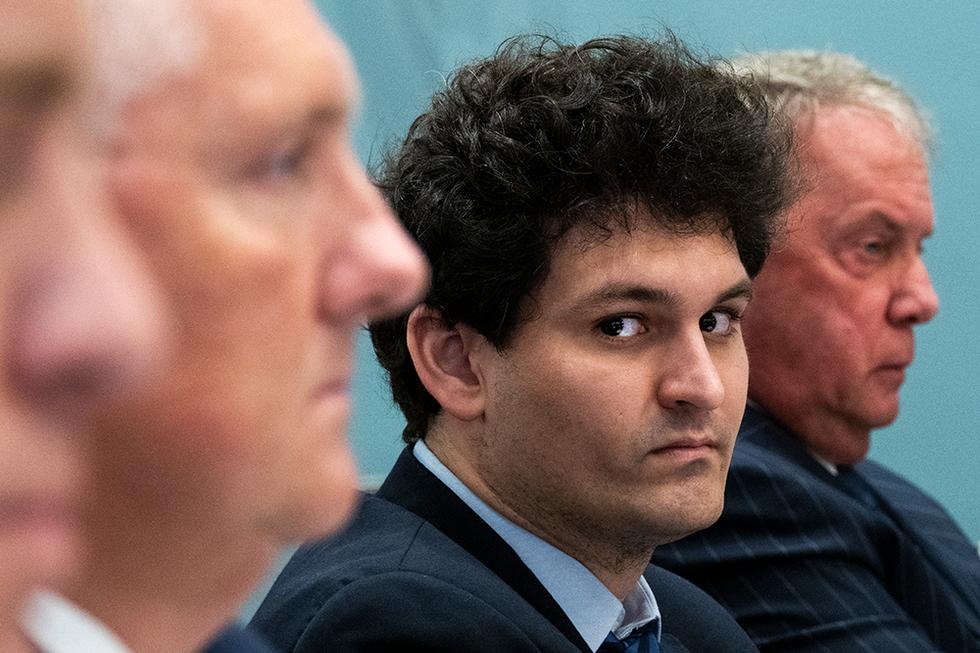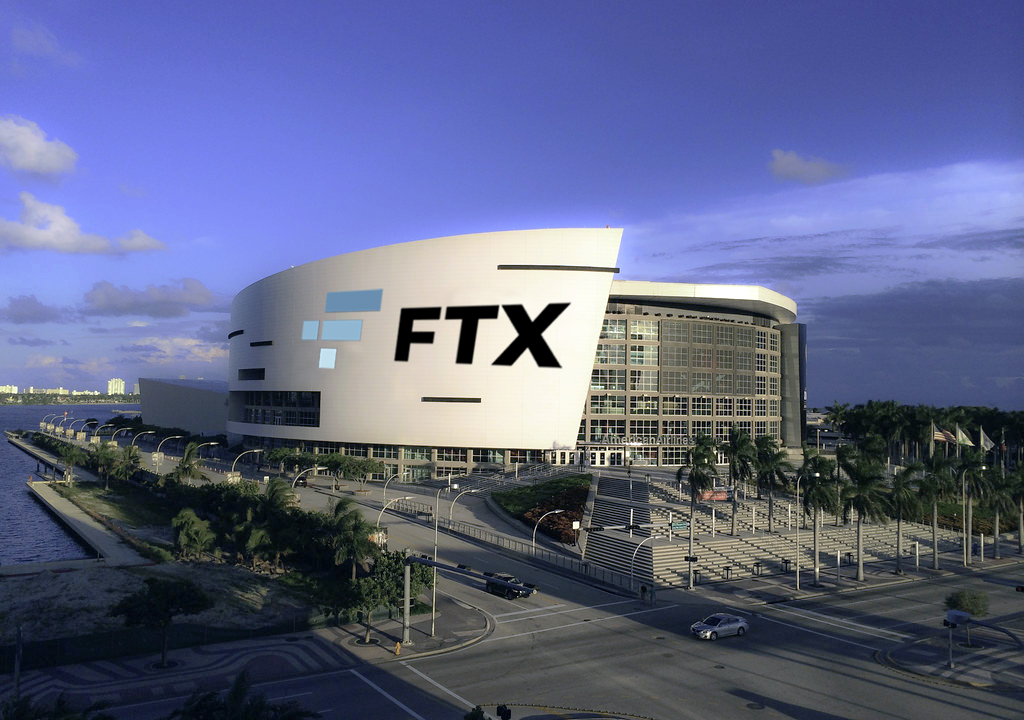United States authorities have submitted a “limited objection” to Binance.US as it plans to buy out bankrupt crypto lending firm Voyager Digital, documents revealed on Wednesday.
The US Securities and Exchange Commission (SEC) filed a limited objection to the $1 billion USD buyout over an alleged lack of “necessary information.”
[DB] SEC Files Limited Objection to Voyager-Binance US Deal: BBG
— db (@tier10k) January 4, 2023
It also accuses Binance.US of failing to demonstrate its capability to finance the takeover, post-acquisition operations, or the security of acquired customer assets.
The SEC added it had communicated with Voyager over the matter. Additionally, it urged Voyager to provide further information on the potential results of the deal, should it fail to take place on 18 April.
A limited objection is similar to a normal objection but only applies to a specific part of the proceedings.
Speculators have said the SEC objection indicates the regulatory body may force Binance’s global operations to pay fees for the acquisition.
In its filing, the SEC said it already communicated its concerns with Voyager and the lender intends to file a revised disclosure statement prior to a hearing on the matter.
SEC basically objecting on the grounds that Binance US couldn’t have this size of assets without some untoward dealing (likely with parentco)
— Adam Cochran (adamscochran.eth) (@adamscochran) January 4, 2023
Which would mean a commingling of the US entity. So if Binance fights it they risk US exposure… https://t.co/9wW6eRTol7
Tit-for-Tat on a Takeover
The news comes after Reuters reported in October that Binance.US conducted its business as a “de facto subsidiary” to “insulate finance from [US] regulators.” Binance chief executive Changpeng Zhao (CZ) has reaffirmed Binance.US continues to operate independently of its parent firm.
The crypto giant has since hit back at detractors in a recent blog post. The company emphatically denied accusations directed towards its operations and provided a seven-point rebuttal to critics.
According to a 19 December statement, Binance and the crypto lending company agreed to a deal totalling $1.022 billion in assets.
The statement read,
“The Binance.US bid, which sets a clear path forward for Voyager customer funds to be unlocked as soon as possible, […] is comprised of (i) the fair market value of Voyager’s cryptocurrency portfolio at a to-be-determined date in the future, which at current market prices is estimated to be $1.002 billion, plus (ii) additional consideration equal to $20 million of incremental value.”
The press release added that Binance.US aimed to “return crypto to customers in kind” while following “court-approved disbursements and platform capabilities.”
Its US operations also vowed to “immediately move to return value to customers” should the deal fail to close by 18 April this year, pending a one-month extension.
Ripple chief executive Brad Garlinghouse has tweeted that he was “cautiously optimistic” about a breakthrough in cryptocurrency regulations across the United States for 2023.
His tweet comes as the 118th Congress kicks off on Capitol Hill. Garlinghouse said in his tweet he hoped 2023 would see US lawmakers gain clarity on “bipartisan [and] bicameral” cryptocurrency regulations.
Today is the first day of the 118th Congress. While prior efforts at regulatory clarity for crypto in the US have stalled, I am cautiously optimistic that 2023 is the year we will (finally!) see a breakthrough. A thread on why…
— Brad Garlinghouse (@bgarlinghouse) January 3, 2023
He said that the stakes “couldn’t be higher,” adding that no bill was perfect and “there likely never will be one that satisfies everyone.”
Garlinghouse continued that the US lagged behind crypto hubs such as the European Union, Brazil, Japan, and Singapore.
Continuing, he said that US lawmakers failed to create a joint effort to build a framework for regulations in the US and worldwide.
He said the lack of coordination “continues to push business to countries [with] lower regulatory bars [leading to] sometimes catastrophic results.”
The news comes after the US Securities and Exchange Commission (SEC) sued Ripple for allegedly selling its native token XRP as an unregulated security. The SEC accused Ripple of not registering its earnings on XRP as securities, according to its regulations. Ripple has strongly and vehemently denied the allegations.
US courts have created an FTX Task Force to track and recover funds for customers hit by the exchange’s bankruptcy. It will also process prosecutions and investigate the matter following FTX’s collapse.
The US Attorney’s Office for the Southern District of New York’s (SDNY) announced the task force following a statement from US Attorney Damian Williams, the prosecutor overseeing the FTX case.
He said in his statement that authorities were “working around the clock to respond to the implosion of FTX.”
“It’s an all-hands-on-deck-moment […] “We are launching the SDNY FTX Task Force to ensure that this urgent work continues, powered by all of SDNY’s resources and expertise until justice is done,” he added.
The Crypto Cleanup Crew
Several senior prosecutors across multiple units are tasked with the “investigation and prosecution of matters related to the FTX collapse.” Departments involved include units for securities and commodities fraud, public corruption, money laundering, and transnational crime.
Following his arrest in the Bahamas, Sam Bankman-Fried, the disgraced former CEO faces multiple charges. These include securities fraud, wire fraud, conspiracy to commit wire and securities fraud, violating campaign finance laws, and money laundering, among others.
Williams also said in a 13 December statement,
“One month ago, FTX collapsed, causing billions of dollars in losses to its customers, lenders, and investors. Now, a federal grand jury in New York has indicted the former founder and chief executive officer of FTX and charged him with crimes related to the phenomenal downfall of that one-time cryptocurrency exchange, including fraud on customers, investors, lenders, and our campaign finance system. As today’s charges make clear, this was not a case of mismanagement or poor oversight, but of intentional fraud, plain and simple.”
Guilty as Charged?
The news comes as Bankman-Fried, Alameda Research chief executive Caroline Ellison, and FTX co-founder Gary Wang face charges linked to the aftermath of his company’s bankruptcy. Just days before its implosion, FTX executives hired a $12 million retainer tasked with managing the fallout.
Bankman-Fried pleaded “not guilty” on 3 January to all charges totalling 115 years in prison. Conversely, Ellison and Wang plead guilty, with the former striking a plea deal with prosecutors. This reduced her sentence to one charge rather than the full seven totalling 110 years in prison.
China is set to introduce new functionality to its central bank digital currency (CBDC), the digital yuan, according to the South China Morning Post.
The Boxing Day message noted users can soon send “red packets” of the stablecoin to others. Beijing launched the new feature at the weekend, just a month ahead of the upcoming Chinese New Year festival on 22 January.
Chinese citizens can send digital hongbao (红包) similar to the traditional red packets. Money gifts are offered to loved ones on New Year’s, the Spring and Autumn festivals, and other holidays, representing prosperity and good luck for the season.
Currently, Chinese people can send digital hongbao on WeChat Pay, Alipay, and other fintech service platforms. Both WeChat Pay and Alipay offer “lucky draw” options to groups to offer prizes.
Red Renmenbi Rollout
The news comes after digital yuan transactions topped $14 billion USD in October, up 14 percent from $12 billion in December 2021, The People’s Bank of China reported at the time.
Several provinces in mainland China have already launched the cryptocurrency, namely in China’s most populous region, Guangdong.
The report read: “Last week, authorities made digital yuan available in four more cities, including Yunnan province’s capital Kunming, and Shandong province’s capital Jinan, as well as the entire provinces of Guangdong, Jiangsu, Hebei and Sichuan.”
As of January last year, 261 million people had created an e-CNY crypto wallet. Figures show that WeChat has 1.3 monthly active users (MAUs) in September. Over 1 billion users were already active on Alipay’s financial system in August 2020.
Several major analyses for the Bitcoin (BTC) and cryptocurrency markets have surfaced in recent reports around the New Year season.
Standard Chartered, a major multinational bank, and a cryptocurrency exchange have offered widely disparate predictions for the coming year, reports have found.
Here are three top predictions from key players in the crypto market.
BTC to Hit $40K by Summer
ShapeShift crypto exchange founder and CEO, Eric Voorhees, said in a recent interview he was optimistic of Bitcoin’s price recovery. He added he would not be shocked if the digital currency reached “like $40K” by the summertime.
He continued that it a 2.5 jump from its current price would be a “great return,” adding a potential bull run could take place in the next six months to three years.
A ten-year timeline for BTC’s recovery would indicate a major failure in the coin’s performance. His analysis cited rising interest rates and stricter regulations as major market disrupters for 2023.
Crypto to Fall to $5,000 in 2023
Conversely, additional media reports warned that BTC could plummet to $5,000 in 2023 due to reported investor underpricing.
Citing a Standard Chartered report, CNBC reported the valuation shift could see Bitcoin prices crash far below its nearly $17,000 price tag.
Eric Robertsen, the bank’s global chief of research, commented in a Sunday note,
“Yields plunge along with technology shares, and while the Bitcoin sell-off decelerates, the damage has been done. More and more crypto firms and exchanges find themselves with insufficient liquidity, leading to further bankruptcies and a collapse in investor confidence in digital assets.”
He concluded that extreme scenarios had a “non-zero probability of occurring in the year ahead, and [may] fall materially outside of the market consensus or our own baseline views.”
Venture Capitalists to Tighten Belts
In a statement cited by crypto media, Outlier Ventures chief executive Jamie Burke said that crypto funding would remain “critical” to the health of the future market.
He added: “[The] strength of the venture market has persisted, with billions of funding still pouring into the space and high levels of capital waiting to be deployed […] we have seen a record number of applications in our most recent cohorts for 2022.”
Concluding, the metaverse and Web3 executive noted ‘undeniable’ changes in the venture landscape. Many fund managers would conserve capital rather than deploy a “spray and pray” investment tactic to avoid risky investments.
2023 is set to see fresh waves of malicious attacks, phishing, scams, and other hacking attempts on cryptocurrency and decentralised finance (DeFi) platforms, a recent CertiK report has revealed.
It was considered the worst year for the industry, with losses increasing from $3.2 billion from the previous year, the company added in a statement to the media.
November was the worst month for cryptocurrency platforms after thieves stole over $595 million in tokens, the company said in its report.
According to a recent CertiK report teaser, cryptocurrency markets saw nearly $3.7 billion USD wiped out due to hackers, scammers, and platform exploits.
#CertiK Annual Report 2022 – Part 1 of 3 ⌛️
— CertiK (@CertiK) January 3, 2023
The largest losses of user funds this year resulted from centralized platforms going insolvent…
From #Luna, to #FTX and #BlockFi, and beyond, let's go through what went down this year 👇
Full Report coming soon 👀 #Crypto pic.twitter.com/e2XbiU42r9
It said in a tweet,
“2022 was a painful year for the many in crypto. Alongside a broad market downturn, the year was punctuated by a number of exploits, hackers, and bankruptcies, with one major exception. The largest losses of user funds this year resulted from centralized platforms going insolvent as falling asset prices exposed their unsustainable business practices”
The company cited the fall of Terra/LUNA, a stablecoin that had lost its currency peg in May last year, triggering a rapid collapse of the cryptocurrency.
Speaking to Business Insider, Ronghui Gu, CertiK chief executive and co-founder, added: “With almost three times as much value lost from Web3 protocols in 2022 compared to 2021, it’s clear that there’s still a lot of work to be done to secure the Web3 world.”
Hacktober to Poor-vember?
The news comes amid the ongoing collapse of FTX, one of the world’s largest trading platforms, which filed for Chapter 11 bankruptcy in mid-November.
Investors saw roughly $8 billion USD in assets wiped from the platform, namely after a massive liquidity crunch ahead of its bankruptcy at the time. Numerous executives, including ex-chief executive Sam Bankman-Fried and former Alameda Research CEO Caroline Ellison, among others, face significant charges for fraud, misappropriation of funds, and defrauding several systems.
Hackers also stole $28 million from Derebit, a massive cryptocurrency exchange for derivatives and other securities, forcing the company to temporarily halt withdrawals.
The incident took place in early November, with the exchange stating it was still in a “financially sound position.” CoinGecko data verified its daily trading volumes were $280 million.
Additional hacks have taken place on Binance, forcing the world’s largest exchange by trading volume to suspend transactions due to the attacks temporarily.
Company chief executive Changpeng Zhao later apologised for the breach, with a further spokesperson stating that roughly $100 million remained “unrecovered.”
Additionally, in March, hackers hit blockchain platform Ronin Bridge in one of the world’s largest crypto thefts on record. North Korean hackers allegedly stole the funds, according to US authorities.
A young Australian crypto trader that sold off roughly $2 billion USD in cryptocurrencies in 2021 is a man aged 25 who operated his platform from his parent’s home in Sydney, reports revealed.
The Australian noted the public filings in an article on Sunday, which document Darren Nguyen’s PO Street Capital and its successes.
According to the documents, Nguyen’s cryptocurrency venture earned around $10.41 million AU by 30 June 2021, filings from the Australian Securities and Investments Commission (ASIC).
It also revealed at the time a total of $2.98 billion AU in crypto trading over a 12-month period, a massive 1,404.12 percent increase from the previous year of $692,182 AU.
It also found that PO Street Capital’s short-term provisions in June 2021 were 4.3 million USD and no debts, with an additional $873,200 in dividends at the same time.
He, his family, including his mother, declined to comment on the business’s activities, including the company’s performance last year.
The successes come amid a major shift in cryptocurrency markets, which saw the massive collapse of FTX in November 2022. Other failing crypto businesses such as Terra/Luna and Voyager also suffered insolvencies the same year.
The boomer generation is performing better in cryptocurrency projects and investments than millennials and Generation Z, new research cited by Cointelgraph has revealed.
According to research from Bybit and consumer research firm Toluna, 34 percent of boomers have conducted due diligence for “a few days” prior to investing in cryptocurrencies, or 50 percent more than Millennials and Gen Z crypto aficionados.
The boomer generation researched tokenomics, competitors, and potential revenues before investing. Conversely, younger traders preferred reputations and “website aesthetics.”
Research added that “64 percent of North American investors spend less than two hours or don’t DYOR at all.”
Boomers are defined as those born from 1946 to 1964, and typically follow a more conservative approach to investments compared to subsequent generations.
The research added that baby boomer and older generations also scrutinised cryptocurrency purchases along with other monetary investments.
Losing the Love for Crypto?
The news comes after a survey found that just 8 percent of US citizens had positive views on cryptocurrency by late November, namely after the FTX collapse.
A CNBC survey of over 800 respondents found that market sentiment in the digital currency market fell significantly from 19 percent in March last year. Negative responses to cryptocurrency jumped from 25 percent to 43 percent in the eight-month period, it found.
The loss of public support comes amid the ongoing collapse of FTX, Alameda Research, and over 130 affiliate firms, who filed for Chapter 11 bankruptcy in mid-November.
The ailing firm faced a huge liquidity crisis ahead of its 11 November bankruptcy, fuelled by a massive bank run on the platform’s native token, FTT. Before the crisis erupted, the troubled company reportedly hired a retainer worth $12 million to conduct services on behalf of the crypto firm.
Sam Bankman-Fried, the disgraced former chief executive of FTX, has been released on $250 million bail following his arrest in the Bahamas, where he was extradited to the United States.
US lawmakers have begun revising cryptocurrency regulations following the collapse of FTX, with the latter triggering the proposed regulations, the Wall Street Journal (WSJ) reported on New Year’s Eve.
According to the report, Capitol Hill has mulled several proposals across banking, tax and securities regulations, and other measures. Legislators have also urged the Securities and Exchange Commission (SEC) to adopt stricter rules across cryptocurrency markets.
FTX’s collapse has damaged the standing of cryptocurrency firms in Washington, dimming prospects for industry-backed legislation and raising pressure on regulators to tighten enforcement https://t.co/BKUNztVTNp
— The Wall Street Journal (@WSJ) December 31, 2022
Rep Jake Auchincloss of the Congressional Blockchain Caucus, said in a hearing last month that it was “time for the blockchain investors and entrepreneurs to build things that matter or to lose more credibility.”
He slammed the cryptocurrency industry for allegedly creating “white papers and podcasts.”
Blockchain advocate Senator Roger Marshall added: “Someone needs to convince me that it’s not all just a Ponzi game.”
FTX Crisis Continues
The news comes after Sam Bankman-Fried, the disgraced chief executive for FTX, supported a bill allowing the Commodity Futures Trading Commission (CFTC) to regulate digital currencies.
Lawmakers aimed to add the bill to budgetary packages in 2023, but may face obstacles due to the ongoing collapse of Bankman-Fried’s cryptocurrency platform.
In mid-December, a White House spokesperson refused to respond to reporters when asked whether US president Joe Biden would return Bankman-Fried’s $5.2 million campaign donations.
Bahamian authorities arrested the disgraced FTX chief in December on charges of mishandling funds and committing financial fraud via his company and Alameda Research, FTX’s crypto research wing.
He also faces charges of violating campaign finance laws, breaching contribution rules, funds contribution violations, and obstructing Federal Election Commission duties, among other offences.
He also contributed $36.8 million to Democratic Party candidates for the 2022 midterms, OpenSecrets data revealed.
Australia has edged up a further spot on the list of the world’s largest cryptocurrency hubs, surpassing El Salvador in total numbers of automatic teller machines (ATMs), data has revealed.
The Oceanic country reached 216 ATM by the end of the year, CoinATMRadar found in its most recent figures. Currently the country stands at 225 ATM locations, with the United States, Canada, and Spain topping the list at 33952, 2649, and 273 spots, respectively.
El Salvador, once a leading country for cryptocurrency cashpoints, has slipped two places after Poland and Australia overtook the Central American nation.
According to reports, Australia’s crypto ATM installations consist of 0.6 percent of total units. Globally, the world currently has 38,614 ATMs across locations.
The news comes as Australia steps up its efforts to regulate cryptocurrencies, namely after the FTX scandal which rocked crypto markets worldwide.
Australia’s Treasury recently pledged to develop a plan for regulating digital currencies due to the ongoing bankruptcy, which saw FTX, Alameda Research, and 130 affiliates file for Chapter 11 bankruptcy in mid-November.
Canberra aims to protect investors with the new regulations and has vowed to monitor the ongoing crisis and additional “spillovers into financial markets.”
Sam Bankman-Fried, FTX’s former and disgraced chief executive has been released on $250 million bail and awaits his first hearings on his role in corruption in the company.
Charges against himself, Alameda Research CEO Caroline Ellison, and others, include fraud, misappropriation of funds, and many others.











